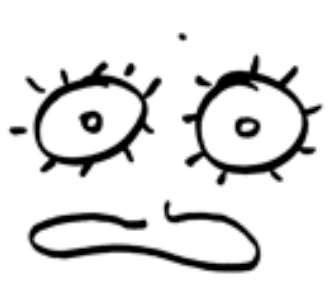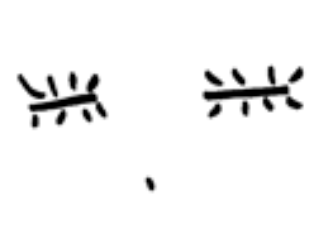

Four times the Torah bids us to tell our children of the Exodus from Egypt. Four times the Torah repeats: “And you shall tell your child on that day….” From this our tradition infers that there are four different kinds of people (and our Haggadah presents its third four). We see each of these around us, and, indeed, within us. To each we respond in a different manner, according to their question, situation and need.
בָּרוּךְ הַמָּקוֹם. בָּרוּךְ הוּא. בָּרוּךְ שֶׁנָּתַן תּוֹרָה לְעַמּוֹ יִשְׂרָאֵל. בָּרוּךְ הוּא כְּנֶגֶד אַרְבָּעָה בָנִים דִּבְּרָה תוֹרָה. אֶחָד חָכָם, וְאֶחָד רָשָׁע, וְאֶחָד תָּם, וְאֶחָד שֶׁאֵינוֹ יוֹדֵעַ לִשְׁאוֹל:
Baruch hamakom, baruch hu. Baruch shenatan torah l'amo yisra-eil, baruch hu. K'neged arba-ah vanim dib'rah torah. Echad chacham, v'echad rasha, v'echad tam, v'echad she-eino yodei-a lishol
חָכָם מַה הוּא אוֹמֵר? מָה הָעֵדֹת וְהַחֻקִּים וְהַמִּשְׁפָּטִים, אֲשֶׁר צִוָּה יְיָ אֱלֹהֵינוּ אֶתְכֶם? וְאַף אַתָּה אֱמָר־לוֹ כְּהִלְכוֹת הַפֶּסַח: אֵין מַפְטִירִין אַחַר הַפֶּסַח אֲפִיקוֹמָן:
Chacham mah hu omeir? Mah ha-eidot v'hachukim v'hamishpatim, asher tzivah Adonai Eloheinu etchem? V'af atah emor lo k'hilchot hapesach. Ein maftirin achar hapesach afikoman.
רָשָׁע מַה הוּא אוֹמֵר? מָה הָעֲבֹדָה הַזֹּאת לָכֶם? לָכֶם ולֹא לוֹ. וּלְפִי שֶׁהוֹצִיא אֶת-עַצְמוֹ מִן הַכְּלָל, כָּפַר בָּעִקָּר. וְאַף אַתָּה הַקְהֵה אֶת־שִׁנָּיו, וֶאֱמָר-לוֹ: בַּעֲבוּר זֶה, עָשָׂה יְיָ לִי, בְּצֵאתִי מִמִּצְרָיִם, לִי וְלֹא־לוֹ. אִלּוּ הָיָה שָׁם, לֹא הָיָה נִגְאָל:
Rasha, mah hu omer? Mah ha-avodah ha-zot lachem? Lachem v’lo lo. Ul'fi shehotzi et atzmo min hak'lal, kafar ba-ikar. V'af atah hakheih et shinav, ve-emor lo. Ba-avur zeh, asah Adonai li, b'tzeiti mimitzrayim, li v'lo lo. Ilu hayah sham, lo hayah nigal.
תָּם מַה הוּא אוֹמֵר? מַה זֹּאת? וְאָמַרְתָּ אֵלָיו: בְּחֹזֶק יָד הוֹצִיאָנוּ יְיָ מִמִּצְרַיִם מִבֵּית עֲבָדִים:
Tam mah hu omeir? Mah zot? V'amarta eilav. B'chozek yad hotzi-anu Adonai mimitzrayim mibeit avadim.
וְשֶׁאֵינוֹ יוֹדֵעַ לִשְׁאוֹל, אַתְּ פְּתַח לוֹ. שֶׁנֶּאֱמַר: וְהִגַּדְתָּ לְבִנְךָ, בַּיּוֹם הַהוּא לֵאמֹר: בַּעֲבוּר זֶה עָשָׂה יְיָ לִי, בְּצֵאתִי מִמִּצְרָיִם:
V'she-eino yodei-a lishol, at p'tach lo. Shene-emar. V'higadta l'vincha, bayom hahu leimor. Ba-avur zeh asah Adonai li, b'tzeiti mimitzrayim.
The active participant represents the best and wisest in us, understanding the urgency of commitment, love, and wonder and delving deeply into the experience. This person explores not only the words, symbols and foods, but uses the values of the Seder to shape daily life. Our hope for liberation depends on encouraging these qualities. When we actively seek justice, beauty and truth, we become free and can begin to move ahead.
The one who passively observes the Seder and scoffs at the efforts of others displays the worst in us. For this person, the Seder has no meaning. This passivity would have kept us in Egypt, enslaved by apathy and indifference.
The shy and those enclosed in their own private worlds of simple questions need us for support and encouragement. We can show how to ask learn and act. This simple ignorance threatens our peace, freedom and security.
Those who are too young to ask will sit puzzled by our efforts here tonight. Our enthusiasm can show them the importance of what we do here at the Seder.
|
|
Ignorant |
||
|
No |
Yes |
||
|
Apathetic |
No |
These are the activists, those who care and want to change things. |
These are the average people who don’t know about something until they’re told about it, at which point they may become active. |
|
Yes |
These people either are heartless or they don’t feel they can do anything to make a change. |
These people are too wrapped up in their own problems. |
|
A fellow asked a buddy:
“Which is worse, ignorance or apathy.”
The buddy responded:
“I don’t know and I don’t care.”
You can draw them too… or… who are you?




The Ballad of the Four Children1
🌀 to the tune of Clementine
Said the parents to their children, “From your bondage you’ll cut loose,
You will eat your fill of matzah, you will drink four cups of juice.”
Now these parents had four children, yes their kids they numbered four,
One was wise and one was wicked, one was simple and a bore.
And the fourth was sweet and winsome, was so young and also small,
While the other asked the questions, this one could not speak at all.
Said the wise one to the parents, “Would you please explain the laws…
Of the customs of the Seder, will you please explain the cause?”
And the parents proudly answered, “’Cause our forebears ate in speed,
Ate the Pesach lamb ’ere midnight, and from slavery were freed.
“So we follow their example, and ’ere midnight we must eat
The afikoman (O so tasty!) which will be our final treat.”
Then did sneer the child so wicked, “What does all this mean to you?”
And the parents’ voice was bitter, as their grief and anger grew.
“If yourself you don’t consider as a child of Yisrael,
Then for you this has no meaning, you could be a slave as well.”
Then the simple child said simply, “What is this?” And quietly,
The good parents told their offspring. “We were freed from slavery.”
But the youngest child was silent, and just could not ask at all,
but with eyes all bright with wonder, listened to the details all.
Now dear children heed this lesson, and remember evermore,
What the parents told their children, told their kids that numbered four.
Every Seder tells a story that belongs to you and me,
You and I were slaves in Egypt. Now we’re blessed with liberty.
To explore the structure of the Seder and this Haggadah, check the |
|
Footnotes
1 Based on Ballad of the Four Sons by Ben Aronin; revised by Cantor William Sharlin, Rabbi Sandy Bogin, and Carol and Elizabeth Levy, with adaptation by Lisa Rauchwerger.